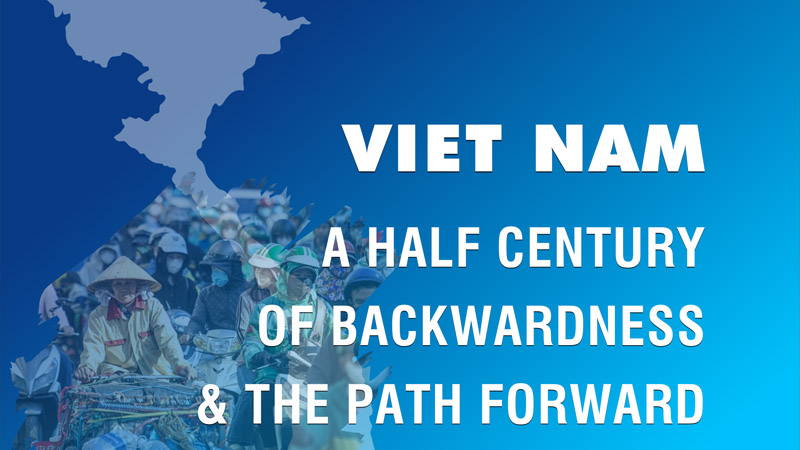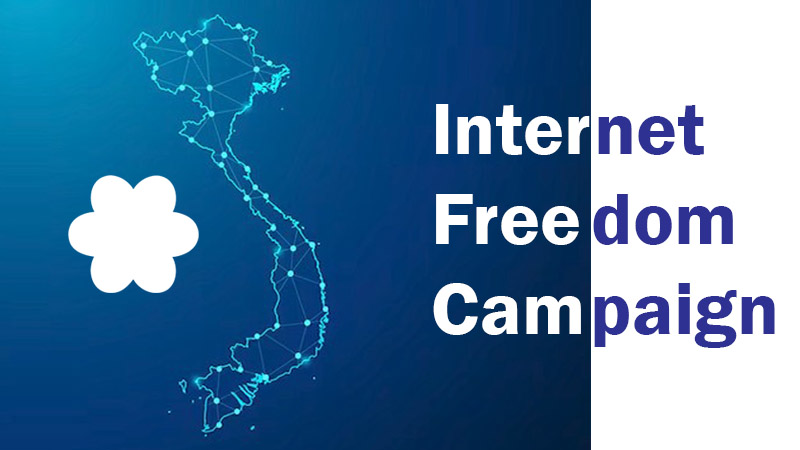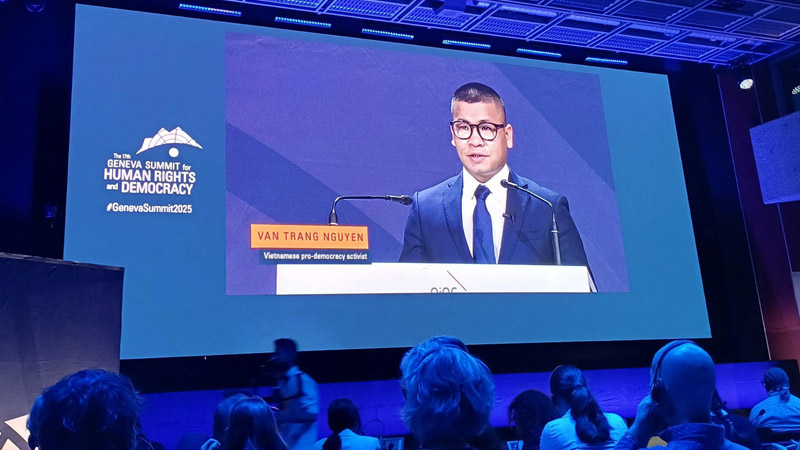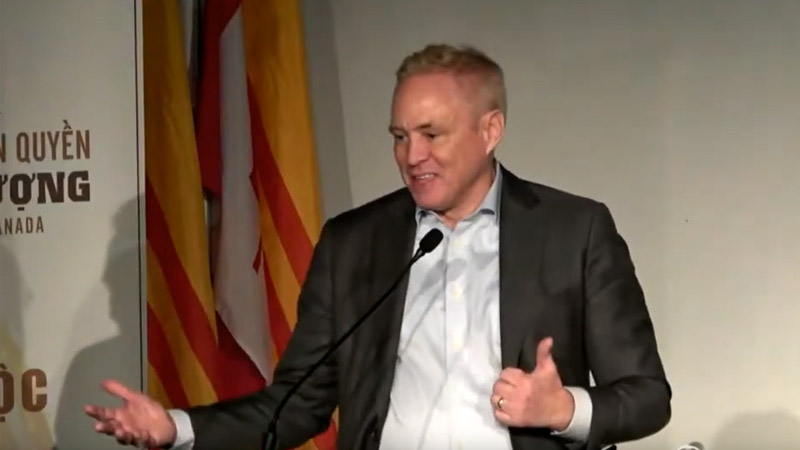July 10, 2008
AMNESTY INTERNATIONAL
Public Statement
AI Index No.
ASA 41/002/2008
Date: 10 July 2008
Viet Nam: Supreme Patriarch Thich Huyen Quang, a life committed to human rights
The Venerable Thich Huyen Quang, Supreme Patriarch of the Unified Buddhist Church of Viet Nam (UBCV), and a prisoner of conscience for many years, passed away on 5 July 2008. He was 87 years old and had been suffering from poor health for several months. He died at the Nguyen Thieu Monastery in Binh Dinh province, with his deputy Thich Quang Do and other senior Buddhist monks present.
The UBCV has announced that a funeral ceremony will be held on 11 July at the Nguyen Thieu Monastery, which Thich Huyen Quang founded. Amnesty International calls on the Viet Nam authorities to allow his funeral to take place according to the wishes of his followers and church, without hindrance and harassment of UBCV members by agents of the state.
Thich Huyen Quang spent more than 30 years in prison or under house arrest in internal exile because of his outspoken defence of human rights, in particular the right to practice religion freely. Since the late 1970s, the authorities relentlessly attempted to silence him and keep him in isolation from other members of the UBCV. Independent from the state-founded Viet Nam Buddhist Church, the UBCV is banned by the government.
First arrested in 1977 when he protested repressive actions against UBCV members, Thich Huyen Quang was given a suspended two year sentence. He challenged the authorities about persecution, human rights violations and state control over Buddhist institutions. Security forces arrested him again in 1982, and placed him under house arrest in a remote pagoda of Hoi Phuoc in Quang Ngai province in central Viet Nam. Local authorities stated that his presence in Ho Chi Minh City was “too dangerous for the safety and well-being of the people”.
In April 1992, Thich Huyen Quang became Supreme Patriarch, and continued, despite his house arrest, to openly criticise government policies and call for greater freedoms. In June that year he issued an open petition to the government, requesting that freedom of religion and other human rights be respected; calling for the release of Buddhist clergy, laymen, writers, journalists, and politicians detained without trial or after unfair trials; and the restoration of confiscated UBCV property. Then in November 1993, he issued a declaration which amongst other things, called for free and fair elections, a new constitution and an end to the supremacy of the Communist Party of Viet Nam.
While still under house arrest, he was again taken into custody in December 1994 when he went on hunger-strike to protest about the detention of five UBCV members who had tried to carry out a flood relief mission in the Mekong Delta. The authorities declined to put him on trial “because of his age and state of health” and instead moved him to another remote pagoda in Quang Ngai province, where conditions were harsh.
Although security police told him in November 1997 that he was officially released from house arrest, he did not receive the formal papers necessary to allow him to return to live at Nguyen Thieu monastery in Binh Dinh province. Instead, he remained under restriction at Quang Phuoc Pagoda in Quang Ngai province, and subject to interrogation, threats and harassment.
In 2003, the authorities finally allowed him to live at Nguyen Thieu Monastery because of his declining health and following persistent calls from the international community, including AI members and other civil society groups, politicians and religious organizations. However the authorities maintained his house arrest and isolation.
Background
The UBCV was formed in 1964, and under successive governments involved itself in social projects, such as opening schools and universities, running orphanages, day-care centres, and relief activities. The UBCV took part in demonstrations against the Viet Nam War and the presence of US troops, and criticized human rights violations by the Vietnamese authorities. After the end of the war in 1975, the new government tried to restrict its activities, arresting and imprisoning many members. Three decades on, the Vietnamese authorities have still not formally authorised the UBCV, but continue crackdowns against its members.
In November 1981 the Viet Nam Buddhist Church was established under the wing of the Viet Nam Fatherland Front, an official organization with authority over all mass membership organizations. Followers of this officially sanctioned Buddhist church are allowed to practice their religious activities unhindered, whereas agents of the state subject UBCV members to harassment, surveillance, arrest, and arbitrary detention. Thich Quang Do, the deputy to Thich Huyen Quang, another long-term prisoner of conscience, remains under de facto administrative detention at his pagoda in Ho Chi Minh City.
END/
Public Document
For more information please call Amnesty International’s press office in London, UK, on +44 20 7413 5566 or email: press@amnesty.org
International Secretariat, Amnesty International, 1 Easton St., London WC1X 0DW, UK





